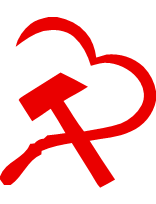In addition to what others have said, remember that the US (and its client-states such as Canada, Britain, France, Sweden, Japan, etc) which have 'democracy' and 'welfare' have these things because and so long as the global south is under their boot. The majority of intense class struggle, the actual "propertyless-except-for-their-labour-power" proletariat, the majority of environmental degredation and all the repressive measures needed to maintain "order" in spite of this naked exploitation have largely been exported to the neocolonies, where such rights and democracies are more obviously nonexistant or fraudulent.
And even in these states, in times of crisis the mask of democracy falls off immediately (e.g. responses to anti-ww1 protests, responses to anti-vietnam war protests in the 70s, responses to environmental protests in the 60s, or responses to indigenous land rights struggles basically all the time.) The freedom of speech is also only freedom from government persecution for free speech. It is not protection from private persecution for speech.
Note that e.g. Walmart, Amazon, Google, and other entities, despite being larger than some nations, are private, are autocracies run by a CEO appointed by money through its physical representatives, the shareholders. There is nothing to stop an employer from firing you from excercising 'free speech' to criticise their practices (if one is even lucky enough to live somewhere where the employer requires a reason to fire someone). As, on the average, all of these CEOs, shareholders, owners, etc share class interests, and the managers, supervisors, etc have delusions of sharing class interests, this works out to a fairly extensive network for suppression of dissent.
Much as the feudal king didn't have to raise the national levies for every uppity peasant, the bourgeois has no need to raise the national armies in response to every uppity citizen-worker. The feudal king would leave such small matters to local lords, priests, or voluntary action of middling landowners; the bourgeois leaves such small matters to the petite-bourgeois, managers, and the 'middle class' generally.
In general wrt 'convincing libs', in my context (imperial core, cannot speak for non-core folks' experiences) I focus more on showing them that our country is evil, that our system is evil than trying to show that e.g. China is good. The fact of the matter is that no matter how good China is, it falls short of the imaginary-utopian America/Canada/France/'The West' the average lib has in their head. No actual real state with flaws will ever measure up to their imaginary utopia; it needs to be shown to be false first.






Karl Marx fanclub. We will dig him up and make Marx bathwater